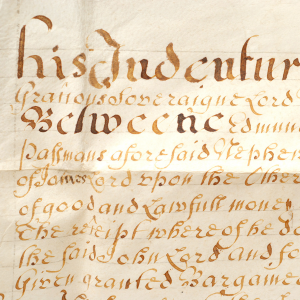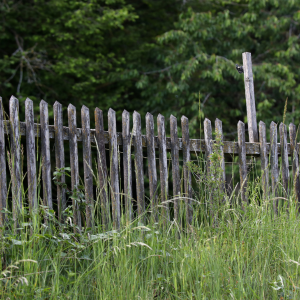|
Buying unregistered property
 Buying unregistered property begins with a short history lesson. Way back in 1862, Lord Palmerston’s government created HM Land Registry, aimed at registering all land and property ownership in England and Wales. It’s proved a formidable undertaking, and over 160 years later, around 13% of land remains unregistered.
Buying unregistered property begins with a short history lesson. Way back in 1862, Lord Palmerston’s government created HM Land Registry, aimed at registering all land and property ownership in England and Wales. It’s proved a formidable undertaking, and over 160 years later, around 13% of land remains unregistered.
If the property you’re buying is unregistered, it means that the evidence of the seller’s ownership is held in private paper records, as opposed to a central electronic record at the Land Registry. In most cases, an unregistered property will have been in the same ownership for decades. Since 1st December 1990, it’s been compulsory to register most property transactions in England and Wales.
Advantages of registration
There are several advantages to property registration, including:
- An absolute government-backed proof of ownership.
- The Land Registry electronically holds evidence of the title, so if old deeds and other documents become lost or destroyed, it’s not so critical.
- Creation of a clear, accessible record of any rights and restrictions affecting the property, such as rights of way, restrictive covenants, and secured borrowing such as a mortgage.
- Greater protection against claims for adverse possession, known colloquially as ‘squatting’.
- Property fraud is more difficult with electronic as opposed to paper documents.
Buying unregistered property
Buying unregistered property is not necessarily difficult, but it’s often less straightforward than for registered property. You may not discover the property is unregistered until you have instructed your conveyancing solicitor. Nevertheless, it’s crucial that your solicitor has experience in unregistered conveyancing and applications for first registration. And that’s very much a dying expertise!
Root of title
 It sounds obvious, but the seller must be able to demonstrate they are legally entitled to sell the property. Without a Land Registry record, this means proving a good ‘root of title’. The root of title is a document which must:
It sounds obvious, but the seller must be able to demonstrate they are legally entitled to sell the property. Without a Land Registry record, this means proving a good ‘root of title’. The root of title is a document which must:
- be at least 15 years old, from which the seller traces their right to sell; and
- deal with the whole legal and beneficial ownership of the land; and
- describe the land sufficiently to identify it; and
- cast no doubt on the title.
To be clear, the seller does not need to have owned the property for at least 15 years. But they must prove an unbroken and unfettered chain of ownership going back to a document at least 15 years old. In many cases, the root of title document is considerably older.
Tracing the root of title sometimes slows down the conveyancing process. If some or all the title deeds are lost or destroyed, the seller’s solicitor may need to make a case for registration to the Land Registry. That involves providing sufficient evidence to prove unbroken ownership, which may be difficult. If so, the Land Registry may only grant them ‘possessory title’ rather than ‘absolute title’. Possessory title means that property ownership remains subject to challenge and, therefore, considerably less attractive to a potential buyer.
Boundaries
 Sometimes, perhaps because of their age, the deeds and any plan attached to them will not be sufficiently clear to establish the property’s boundaries accurately. Although a Land Registry plan is not absolute proof of a property’s boundaries, it will at least include a scale and a north point and be a helpful guide to delineating the boundaries with neighbouring properties.
Sometimes, perhaps because of their age, the deeds and any plan attached to them will not be sufficiently clear to establish the property’s boundaries accurately. Although a Land Registry plan is not absolute proof of a property’s boundaries, it will at least include a scale and a north point and be a helpful guide to delineating the boundaries with neighbouring properties.
As there can be problems with adverse possession of unregistered land, before buying an unregistered property, it’s crucial to:
- view the boundaries on the ground, and
- comparing them with the description in the deeds and any plan.
Any ambiguity may mean advice from a boundary surveyor is essential.
First registration
Although indemnity insurance is available to cover various risks associated with unregistered property, your conveyancing solicitor will sometimes discuss with you whether the seller should apply for voluntary first registration before proceeding further.
Should the property remain unregistered at completion, your solicitor will apply to the Land Registry for first registration.

 Residential Property
Residential Property